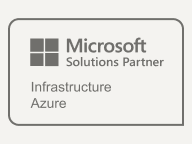

The Med Tech Solutions Family is Growing!

We are pleased to announce our most recent acquisitions.
As we have worked to continue our growth in the healthcare industry, we have looked for ways to enhance and expand our services. With our new line of Healthcare IT solutions and services, we can continue to serve our clients in this ever-evolving world of healthcare.
ACQUIRED JULY 2022
From eMedApps – Check out these new services and solutions.
eMedApps products and professional services make EHRs and healthcare technology systems smarter, faster, and easier to use and they are now a part of the MTS offerings.
- eMedApps CareFinity Live Archive – The archive and downtime solution for your EHR that reduces data size and increases application speeds. Remove chart data from your EHR into the archive. View archived data and restore on demand.
- eMedApps CareFinity EHR Downtime – Never go without access to patient data. A comprehensive EHR downtime solution. View Charts. Schedules, Documents, and create notes.
- eMedApps CareFinity Archive – Archive patient and financial data for old systems for easy compliant access.
- eMedApps CareBridge Integration Platform – Integrate your EHR with all other health IT systems to create a truly interconnected network and a complete view of your patient charts.
- Data Migration and Conversion – We extract, cleanse, and convert. Our data migration and conversion experts will work with your team to identify which data needs to be archived, extracted, or converted.
- Revenue Cycle Management – We’ll ensure your practice runs smoothly while maintaining its financial health with our billing services, cost-containment strategies, and ancillary healthcare consulting.
- Expanded NextGen Services – Certified NextGen EHR consulting services and products. We help healthcare delivery organizations maintain their NextGen EHR for peak efficiency, facilitate seamless upgrades, and choose additional technology to enhance the EHR’s capabilities.
- MIPS and Other Regulatory Services – Our professionals can help guide you through regulatory programs including modifications and training to meet requirements, attestation, preparing documentation for audits, and responding to audits.
ACQUIRED NOVEMBER 2021
From Health1 Technologies – Check out these new services and solutions.
Health 1 Technologies understands a practice’s needs and provides flexible and comprehensive service around Electronic Medical Records and Practice Management systems. These offerings are now a part of the MTS offerings.
Cloud Hosting Services – Health 1 offers hosting for athenaPractice, Allscripts, NextGen, and a multitude of other EHR and practice management systems without the worries of purchasing, configuring, maintaining, supporting, and securing your hardware and network or keeping up with all your vendor’s changing specifications.
- Implementation Services – Implementing a new system often requires a great deal of time from everyone. Our focus during an implementation is to help you not only with resources but also to provide support to customize the system as needed.
- Clinical Systems Training Packages – We provide a customized training agenda designed to successfully train your entire staff according to your organization’s specific needs.
- Clinical Content Development – Let us maximize your clinical content. Our consultants have extensive knowledge and experience in creating customized clinical content to satisfy providers and ensure efficient use of your system. Our content developers work directly with your clinical staff to create forms, documents, and templates that meet your exact business needs.
- Reporting Services – Let us develop customized reports out of any software product.
- athenahealth Optimization – Let us fully optimize your athenahealth system (formally Centricity) to its full potential.
- athenahealth EMR – We help healthcare delivery organizations maintain their athenahealth (formally Centricity) EMR for peak efficiency, facilitate seamless upgrades, and choose additional technology to enhance the EHR’s capabilities. We can also assist you with implementing or optimizing various 3rd party Add Ons.
- athenahealth PM – An ambulatory medical practice is a unique environment for information and technology. Several factors inherent in the healthcare community call for a specific level of competency in order to accurately install, maintain, and support technology, and that is where we come in.
- Quality Programs – There are many Quality Programs that are driving much of the change in healthcare. These programs will have a direct impact on your reimbursement so knowing the details of the program is critical to your bottom line. Let us assist you in understanding the important pieces of the Quality Program you are participating in.
- RCM – We understand the importance of having a Medical Billing Service you can trust. We are focused on collecting the maximum revenue for your practice as quickly as possible while helping to alleviate costs and hassle for your organization. We provide stellar support that will ensure you can keep your practice running smoothly and keep your practice financially healthy.
We take that stance seriously.
Our overall goal is to grow our services and solutions exponentially and continue to provide you with any assistance needed to ensure that your healthcare IT systems are secure, fully optimized, financially healthy, fully compliant, and enhanced to fit your workflow, infrastructure, and organizational needs. All of these solutions, in line with our existing solutions, aid us in being the partner you’ve been looking for. Allow us to do the hard work so you can focus on patient care.








